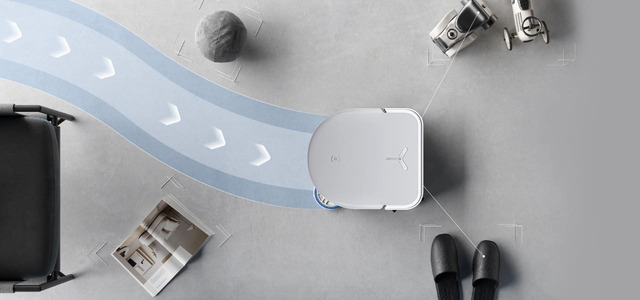Chinese home appliance manufacturer Ecovacs is criticized for reports that its robot vacuum chases pets and uses offensive language. Meanwhile, Xiaomi and Aigos smart air fryers have been found to store user data on Chinese servers, raising growing concerns about security vulnerabilities in Chinese-made appliances.

According to industry sources on Sunday, the problem of personal data leaks from Chinese home appliances remains ongoing. These devices are known to store user voice data and lifestyle patterns and are vulnerable to external hacking.
Home appliances often feature advanced technologies such as artificial intelligence (AI). Security has become a critical aspect of appliance design, with functionalities like cameras and location data increasingly linked to smartphones.
If the security of such devices is compromised, appliances in bedrooms, living rooms, and kitchens—such as refrigerators or robot vacuums—could quickly become spy cameras.
Recent incidents in the United States reported by ABC News and the New York Post revealed that Ecovacs’ Deebot X2 robot vacuums were hacked in multiple households.
The robot vacuum chased a pet dog in one Los Angeles home and acted menacingly. In Minnesota, it played racially or sexually offensive remarks.
At Def Con, the world’s largest hacking conference held in August, South Korea’s Ministry of Science and ICT confirmed that user data could be extracted from Ecovacs robot vacuums and lawnmowers, which had been a concern in the United States.
The problem extends beyond vacuums. British newspaper The Sun recently reported that user data collected by apps linked to Chinese-made air fryers was transmitted to servers of companies like TikTok.
British consumer protection group Which? disclosed that control apps for air fryers made by China-based Aigostar and Xiaomi requested permissions to access user conversations during app registration. These permissions included tracking users’ locations and recording phone call content.
South Korean companies are taking proactive steps to address these issues by significantly enhancing the security features of their products.
Samsung Electronics Bespoke AI Steam Robot Vacuum became the first robot vacuum to receive the Privacy by Design (PbD) certification, awarded by South Korea’s Personal Information Protection Commission and the Korea Internet & Security Agency (KISA).
PbD is a design framework that considers privacy protection throughout the entire lifecycle of a product or service, from planning and manufacturing to disposal. Samsung Electronics applies its proprietary security solution, Knox, to its AI-powered appliances, ensuring the safe management of all data, including personal information.
LG Electronics is expanding its LG Shield system, focusing on AI-powered products. LG Shield encrypts sensitive data, such as personal information, and stores encryption keys in separate, secure locations to prevent information leakage. The system also protects the operating system to prevent hackers from altering operation codes or data.
An official from South Korea’s home appliance industry stated, “Chinese-made appliances rely heavily on price competitiveness, but questions about their security remain. Korean appliances are designed with strong attention to security to ensure that consumers can trust and use them.”














Most Commented